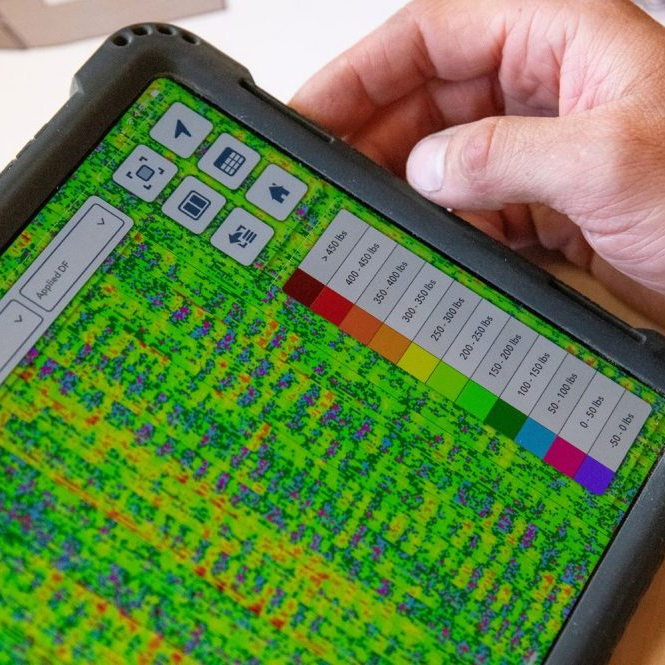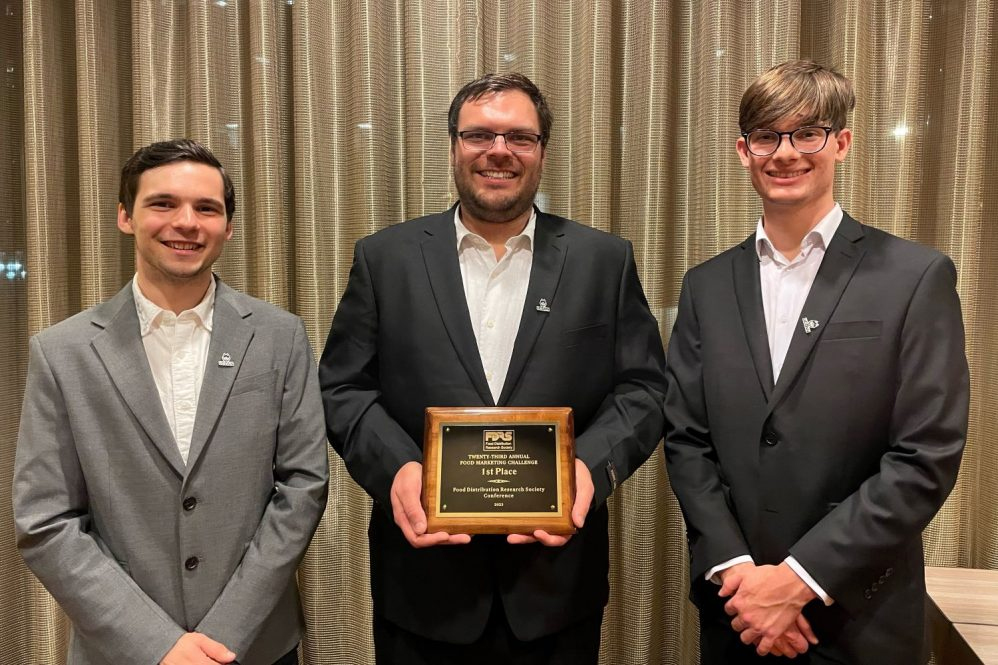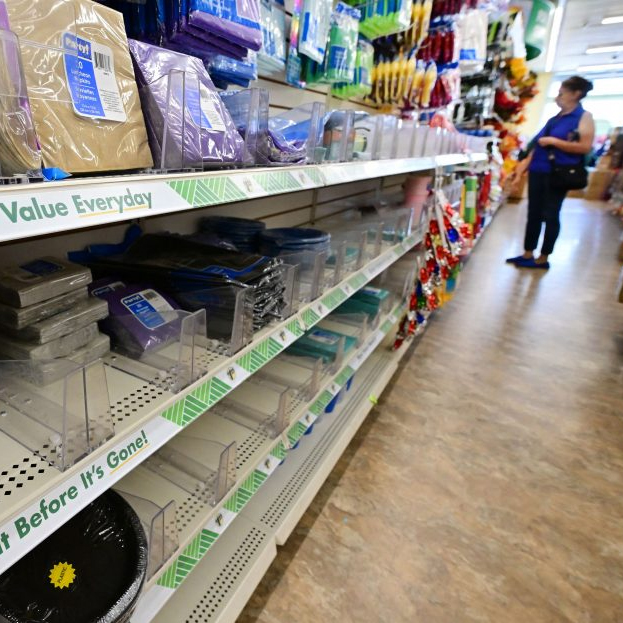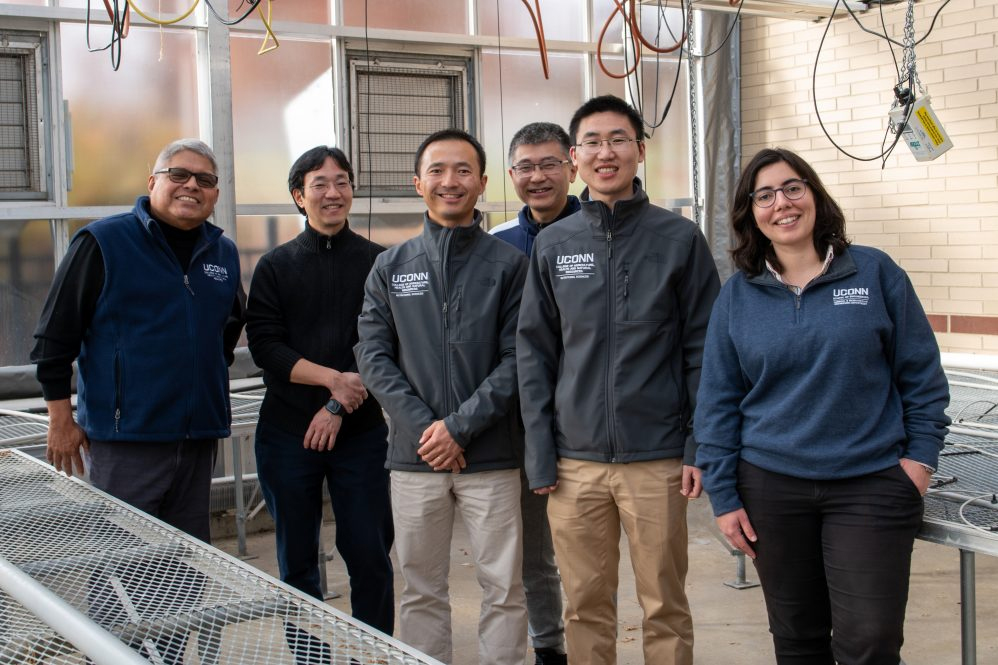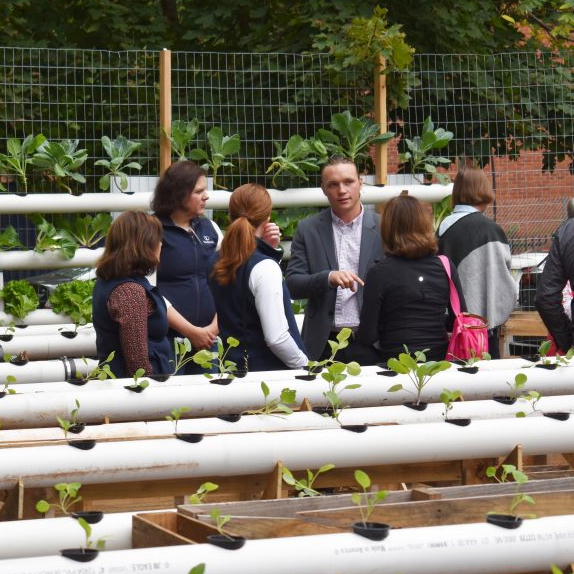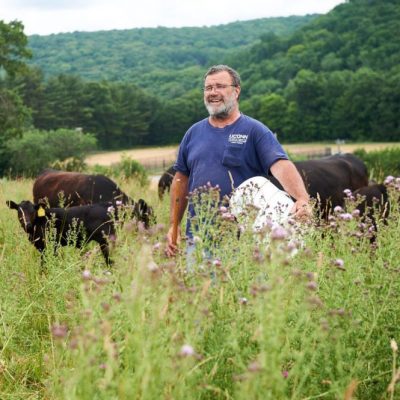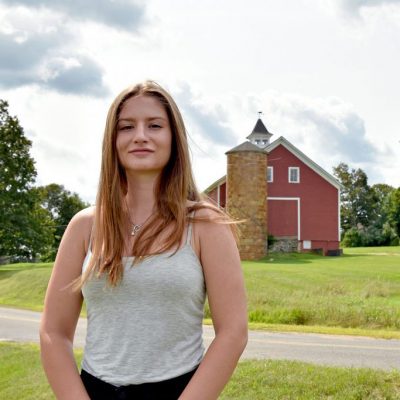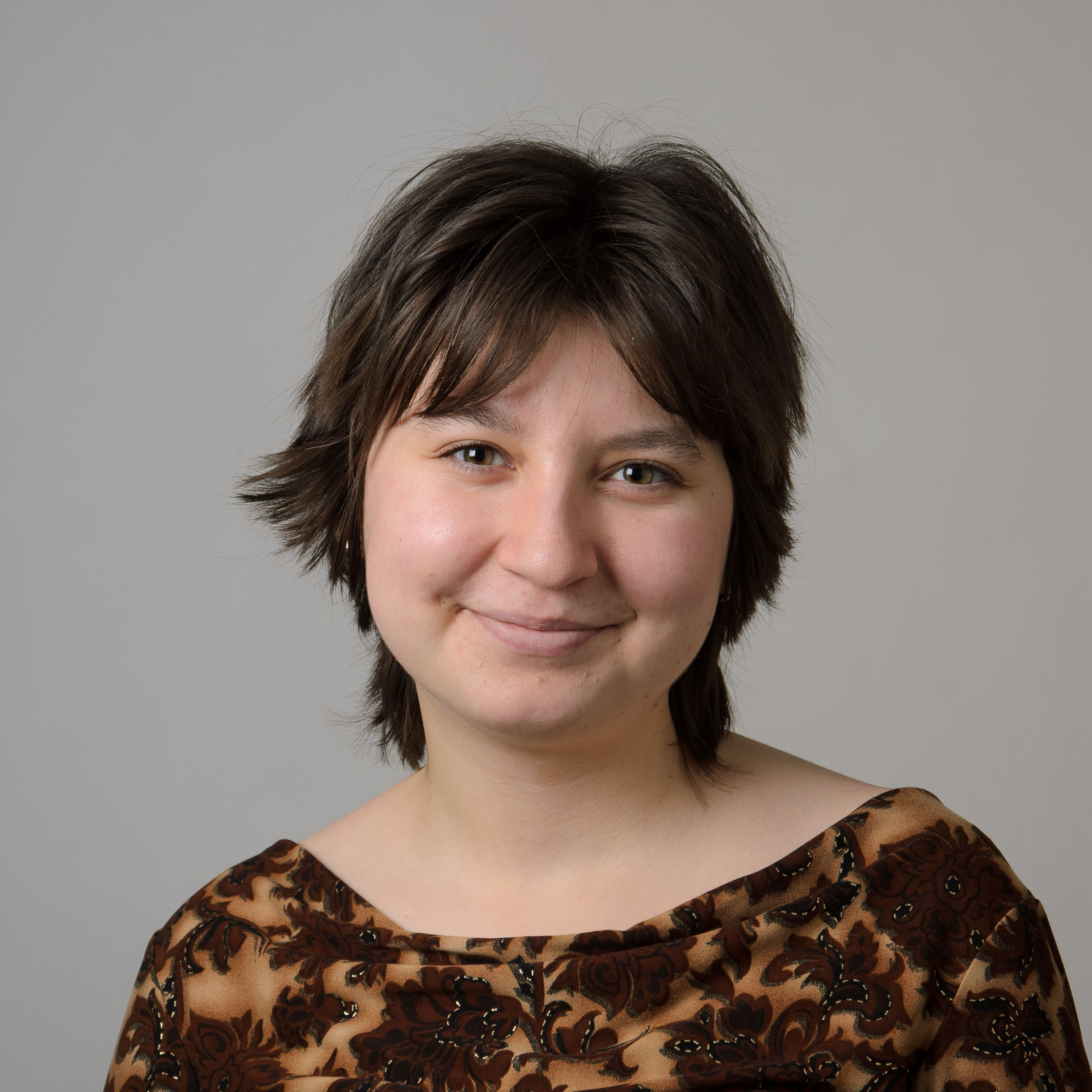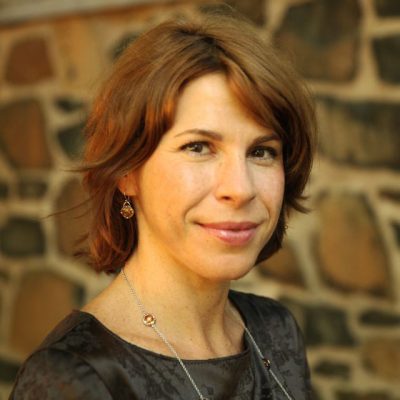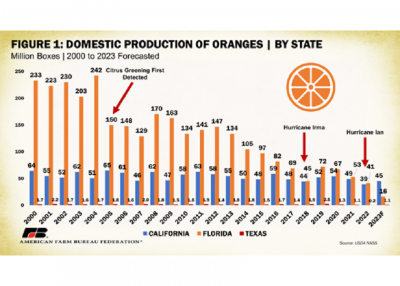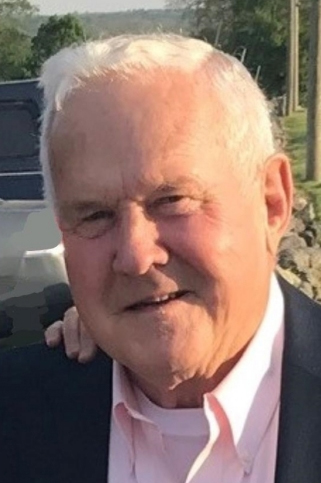UConn students placed first in the national Food Distribution Research Society (FDRS) Student Food Marketing Challenge. The winning team included John Daly ’23 ’24 (CAHNR), William Hiers ’24, and Jacob Timchak ’25 and was organized by Cristina Connolly, ARE Assistant Professor.
All teams were given a real-world problem and one week to develop strategies to address the issue at hand. The UConn team was assigned an Uzbekistani company, Metin LLC, looking to expand into international markets beyond Russia. They looked at various food products, namely fresh and dried fruits, and identified which foreign markets would be the best fit for those products. After many iterations and a few late nights, the team decided to recommend the company sell fresh fruit to China and dried fruit to the United Kingdom.
“Because these are real clients, the solutions that all three teams came up with are all getting sent to Metin,” Connolly says. “So, there could potentially be real impacts from the results of this competition, it’s not just theoretical.”
Read the entire article
